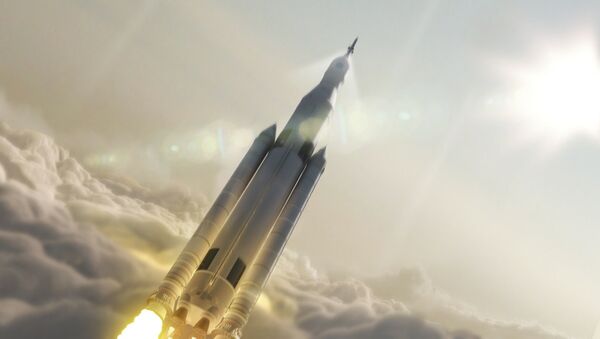NASA Administrator Jim Bridenstine has told US lawmakers that with its SLS rocket behind schedule, the agency is considering the use of commercial rockets for its upcoming Moon mission.
"We are now understanding better how difficult this project is," he said, commenting on the SLS project, in testimony to lawmakers from the Senate Commerce, Science and Transportation Committee.
"SLS is struggling to meet its schedule," the administrator noted. "Last week, it came to our attention that we're not going to be able to maintain the schedule" for a 2020 Moon mission, he added, pointing out that the rocket project was already three years behind schedule.
Saying the agency needed to "stick to" its commitment for the proposed June 2020 unmanned mission around the Moon, known as Exploration Mission-1, Bridenstine broke with NASA's earlier 'SLS or bust' promise and said that the use of commercial rockets needed to be considered for this to happen.
NASA is considering the use of two commercial launchers to deliver an unpiloted Orion crew capsule and its European-made service module into orbit for a test flight around the Moon, according to the official. The mission is expected to be the first leg in a series of manned flights, the creation of a space station orbiting the Moon, and the eventual return of astronauts to the Moon's surface for the first time since 1972 and the last of the Apollo series of missions.
NASA is one of several agencies developing or otherwise working on the creation of a super-heavy lift vehicle, with the retired US Saturn V and Soviet Energia presently remaining the only rocket systems in the world to date with a proven payload capacity of 100 tons or more. Along with NASA and its contract with Boeing, SpaceX, as well the Chinese and Russian space agencies, are working on their own super-heavy rockets.



